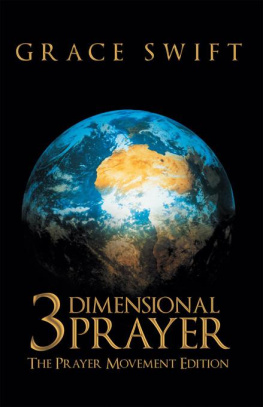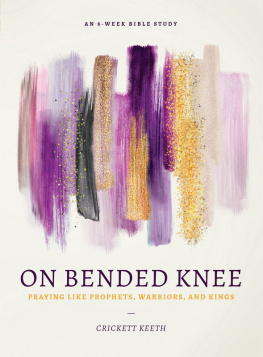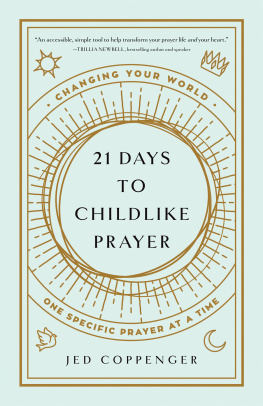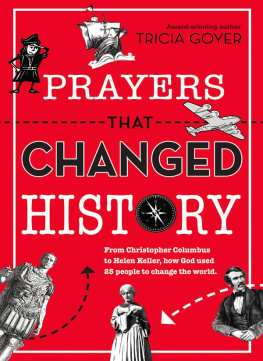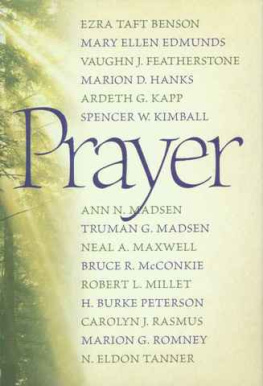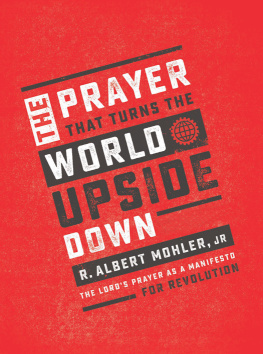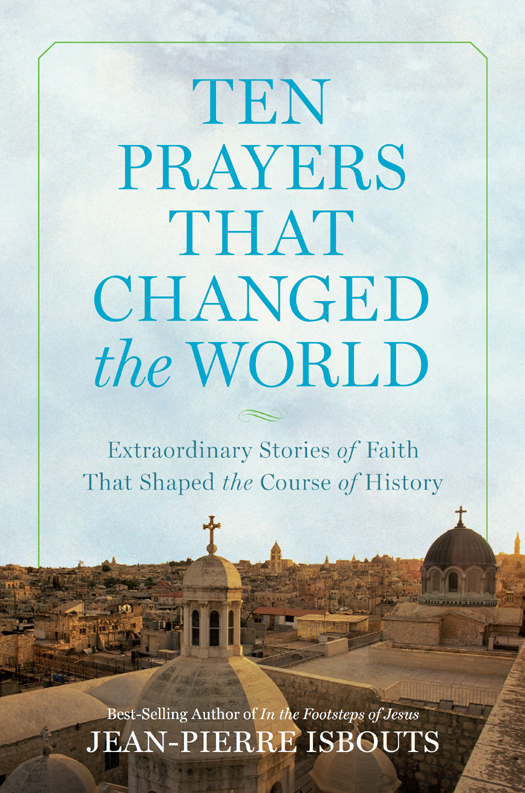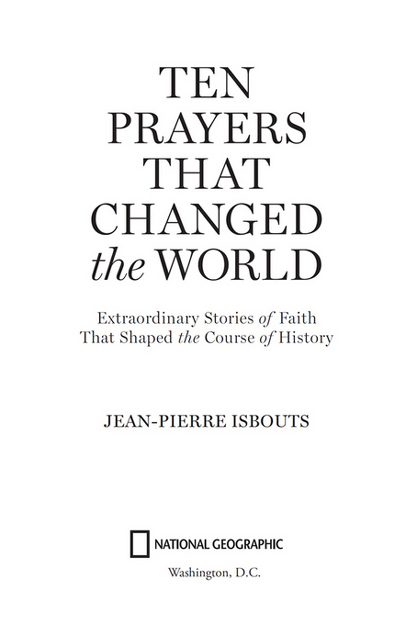P RAISE FOR B OOKS BY J EAN -P IERRE I SBOUTS
National Geographics The Biblical World: An Illustrated Atlas
For its scope, beauty, and relevance in todays world, this unparalleled atlas has become a classic. Booklist
The National Geographic Society, under the editorship of Professor Isbouts and a team of advisors, has produced a visually stunning atlas of the Bible.
Donald Senior, C.P., The Bible in Review
This ambitious and carefully researched undertaking has a simple aim: to give readers a chronicle of the people, places, and events that shaped the biblical world.
Jennifer Jack, American University Library
From Moses to Muhammad: The Shared Origins of Judaism, Christianity and Islam
An exciting and scrupulously fair book, in a field where excitement often overwhelms fairness. Not here: Isbouts is a trustworthy guide throughout a perennial minefield. Francis E. Peters, author of The Children of Abraham
Jean-Pierre Isbouts makes a most important contribution to help overcome negative stereotypes. Rabbi David Rosen, Director, Interreligious Affairs, American Jewish Committee
National Geographics In the Footsteps of Jesus
Dr. Jean-Pierre Isbouts has written widely on the genesis of Judaism, Christianity and Islam I was moved by his text challenging me more deeply to follow the Way, Truth, and Life. I felt that I was following Jesus again.
Carol Ann Morrow, St. Anthony Messenger
What emerges from the books pages is a very modern portrait of a grassroots spiritual reformer, fired by the socio-economic injustices of the Galilee and Judea of his day. This makes the book surprisingly relevant for our own era, when the Middle East is once again convulsed by the collision of political, religious and ideological forces. Santa Barbara Independent
National Geographic Whos Who in the Bible
Isbouts (humanities, Fielding Graduate Univ.; The Biblical World) has written an exquisite reference guide to the personalities in the Bible This well-researched and well-organized work will complement what is already on your shelf.
Jacqueline Parascandola, Columbia University Libraries
Occasionally, a book will arrive that is so impressive in its presentation that I stop immediately to look through it. Such is the case with Whos Who In The Bible: Unforgettable People and Timeless Stories from Genesis to Revelation by Jean-Pierre Isbouts The scholarship is deep and without the usual presuppositions.
John D. Pierce, Baptists Today
Published by National Geographic Partners, LLC
Copyright 2016 Jean-Pierre Isbouts
All rights reserved. Reproduction of the whole or any part of the contents without written permission from the publisher is prohibited.
NATIONAL GEOGRAPHIC and Yellow Border Design are trademarks of the National Geographic Society, used under license.
Library of Congress Cataloging-in-Publication Data
Names: Isbouts, Jean-Pierre.
Title: Ten prayers that changed the world : extraordinary stories of faith that shaped the course of history / Jean-Pierre Isbouts.
Description: 1st [edition]. | Washington, DC : National Geographic Books, 2016. | Includes bibliographical references.
Identifiers: LCCN 2015033586 | ISBN 9781426216442 (hardcover : alk. paper)
eBook ISBN: 978-1-4262-1645-9
Subjects: LCSH: Prayers. | PrayersHistory. | HistoryReligious aspectsChristianity. | HistoryReligious aspects.
Classification: LCC BV245 .I83 2016 | DDC 242/.8dc23
LC record available at http://lccn.loc.gov/2015033586
Since 1888, the National Geographic Society has funded more than 12,000 research, exploration, and preservation projects around the world. National Geographic Partners distributes a portion of the funds it receives from your purchase to National Geographic Society to support programs including the conservation of animals and their habitats.
National Geographic Partners, LLC
1145 17th Street NW
Washington, DC 20036-4688 USA
Become a member of National Geographic and activate your benefits today at natgeo.com/jointoday.
For information about special discounts for bulk purchases, please contact National Geographic Books Special Sales:
For rights or permissions inquiries, please contact National Geographic Books Subsidiary Rights:
Interior design: Melissa Farris/Nicole Miller
v3.1
To Cathie,
my muse, my strongest critic,
and my best friend
CONTENTS
A UTHOR S N OTE
Although I have dramatized the following ten stories to some extent, the dialogue is based on historical sources that are documented at the back of this book. At the end of each chapter I also examine the story from the critical perspective of a historian, to see what verifiable impact each prayer or whisper from God had on the course of history.
Jerusalem is holy to three of the worlds great religions: Judaism, Christianity, and Islam.
()
INTRODUCTION
I s there someone in heaven who governs what happens on Earth? Since the dawn of time, men and women have asked this simple but fairly fundamental question. And if the answer is yes, then the next question is, What is this divine presence like? Does it take an active interest in human affairs? Does it even speak to us?
In prehistoric times, this was not a matter of idle speculation. A typical community lived or died by the outcome of its harvest, the fall of rain, or the health and fertility of its herd. That is why the earliest gods were all creatures of agriculture: Baal, the lord of rain and dew; Enki, the god of freshwater; Inanna, the goddess of fertility and love. People thought that when the rains stopped and the land lay dry, the reason was that Inanna, later known as Ishtar, had had a marital spat with her husband, Baal, and refused to share his bed. This belief, which originated among the irrigated fields of Mesopotamia, would continue for more than a thousand years, well into the time of ancient Israel. For example, many Hebrew farmers would first worship Yahweh and then steal away to the shrines of Ishtar and Baal lest some harm come to their crops.
But is it true that the Divine truly takes an active interest in humankind? To this day, it continues to be an important question. Hebrew Scripture (what Christians call the Old Testament) has a clear answer on the subject: All of the Torah, the Five Books of Moses, is predicated on the belief that God is actively engaged with his people, for he rescued them from the clutches of Pharaoh and led them to the safety of the Promised Land.
It wasnt until some two and a half millennia later, during the period we now call the Enlightenment, that many thinkersincluding Thomas Jefferson, among othersbegan to question the idea that God was interested in life on Earth. Why would he do so, they asked, if he gave us free will? Would it not be more plausible to think that while God may have created the heavens and the Earth, he would rather leave us to our own devices to figure out how to live a moral life on our own accord? How else, they argued, could one explain the existence of war, pestilence, drought, and famine? Would a merciful God deliberately inflict such horrors on his own creation?


